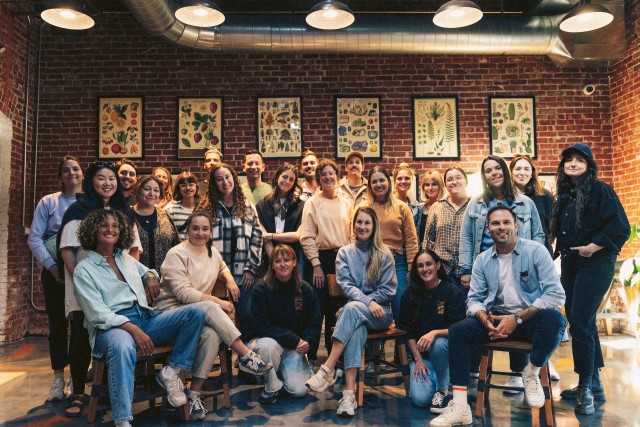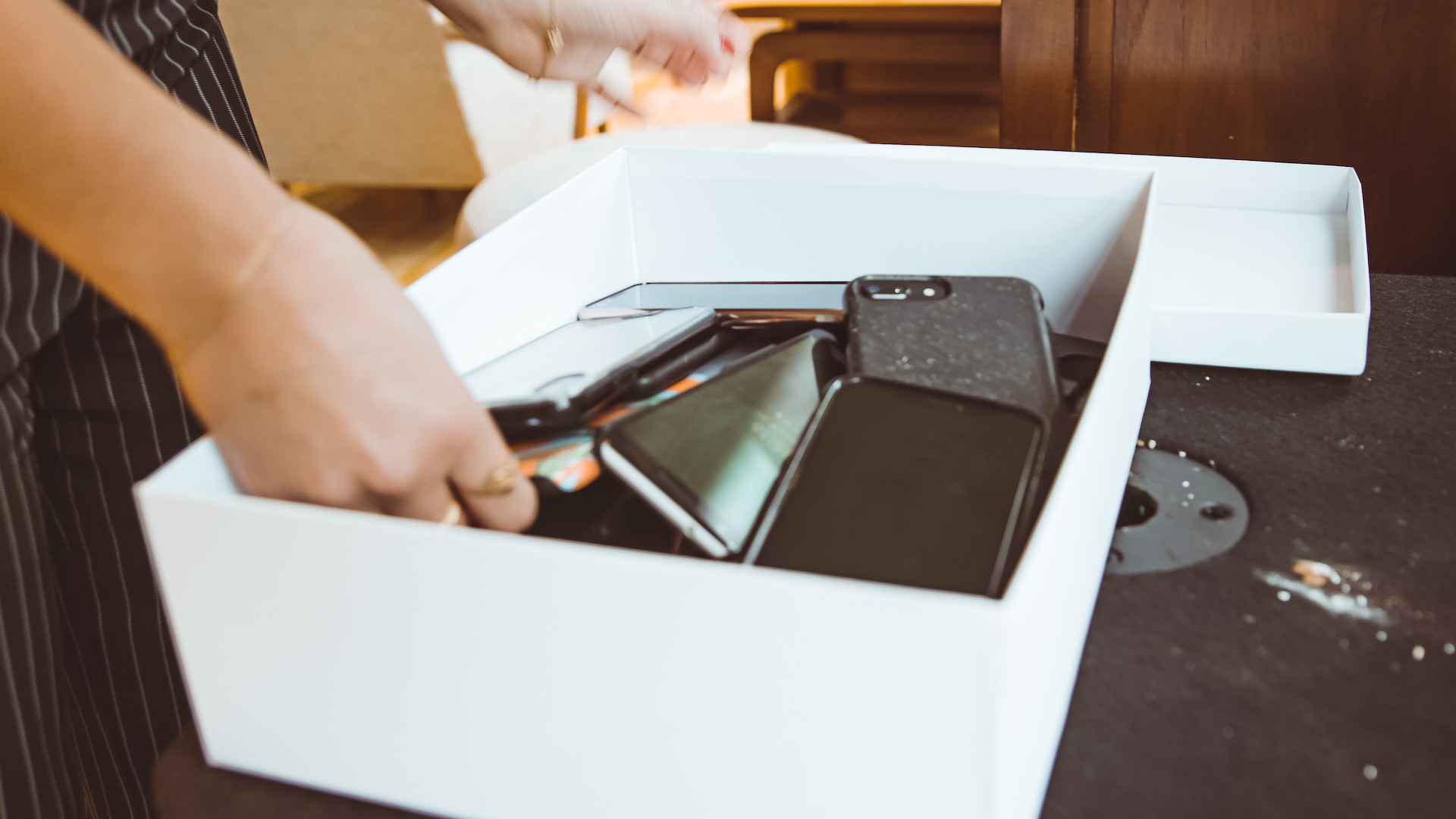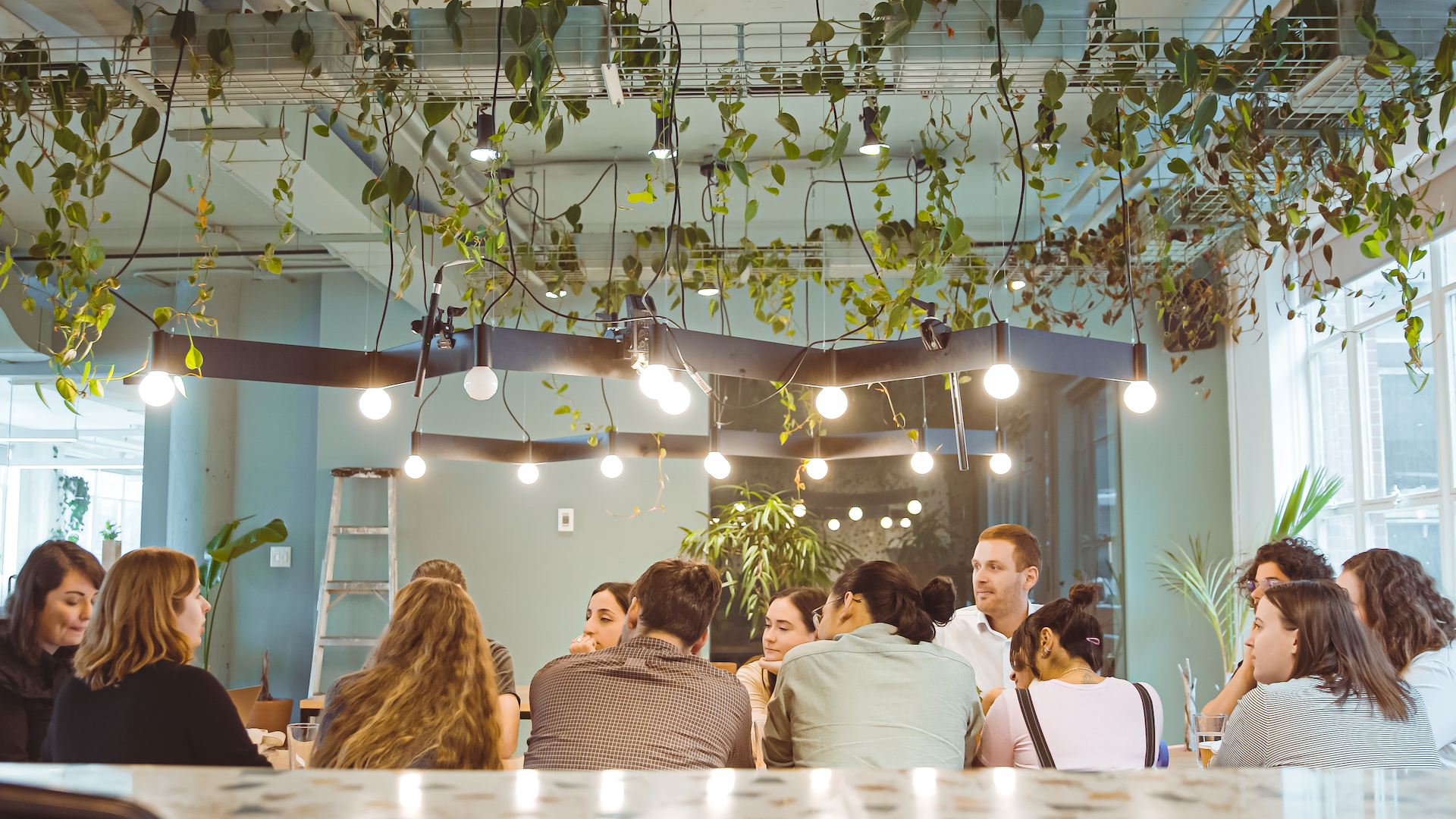
Offsite 2022: Road to Inspiring B Corp Companies

It's 9 am when Maxime, who brought up the idea of disposing of our cellphones, dropped a white box on a tiny table in the bistro area, box in which all of our cells coexisted for the entire day. To honour the World Day without mobile phones, we (almost) all left our cellphones behind during a whole day at work to rethink our relationship with the device. Here's what we learned for our collective experience.
In 2020, it is now impossible to substitute every functionality of our cellphone with something else. It acts as a GPS, a calculator, a planner, a landline phone, and more. Supplanting social media is a whole other thing. We need to enjoy more time together before it becomes a real issue.
Before I start explaining our day, I would like to invite you to achieve the same challenge. Considering you are taking the time to read this article, you might also be able to take the time to call a person with whom you interact daily on Facebook, IG, or even LinkedIn, but you haven't seen in a long time, and suggest an outing?
Let's start with the beginning. On February 5th, we published a short video which explained that in honour of World Day without mobile phones, I was challenging my colleagues to leave their phone behind for the entire duration of the day to question ourselves on its utility, the content we consume and the place it now takes in our daily lives. My teammates all responded positively to my “wake-up call.”
During lunchtime, we all got together at a big square table to discuss many topics related to the object we use around 3,2 hours a day (based on a recent Canadian study).
The discussion objective: share our personal use to see what we can do as an agency eventually.
It is then based on a non-scientific approach, even if we read many essays on the subject before the meeting that we exchanged with a good conscience and, most of all, without taboo.
"What I found the most difficult was to use public transportation without being able to listen to music or get to the office without my GPS or Waze." - Martin Bertrand
The day before the challenge, Martin forgot his cellphone at the office. On February 6, he willingly left his phone at the agency when he drove to meet a client during the afternoon. Justine did the same. They both pushed their boundaries further by letting their iPhone sleep at the office for more than 24 hours.

"Frequently, I'll start an article at the office and read it until I get home. And at work, I often use my cellphone to look at brands that the article mentioned. Two to three times that day, I wanted to grab my phone to do the same and realized I didn't have it on me." - Justine Laurier
"Speaking for myself, I took advantage of the challenge to read the journal in the subway instead of scrolling down." - Julie de la Rocq
"We work in a field that is driven by our cellphone. The truth is, if it weren't for my profession, I would leave it behind way more. I never got anxious because I didn't have my iPhone, even if I use it every two minutes at the office." - Manny Fortin
The complexity: planning your entire day.
Obviously, for my community manager colleagues, it is almost impossible not to use your cellphone for a whole day. Still, they made it happen in their way. Some felt younger by getting back to their old habits. A few of them were: using a calculator for budgeting, writing down the indications to get to a client's office before getting there, or even having a full conversation with strangers in the elevator.
This challenge was mostly an excuse so we could take the time to get together and do what we do best: attempting to solve a problem that has no right answer and brainstorm out loud on a topic that touches most of us. Through this vivid exchange where everyone wanted to share their experience, I learned that some of my colleagues already took actions to limit the time they spend in front of their screen.
"Since January 1, I try to leave my cellphone in the kitchen when I go to bed. I did not make it happen once... but I am trying very hard." - Élisa Sabatié
I also learned most of my colleagues think they have a healthy relationship with their phones.
"Most of the time, the content I am consuming is inspiring multiple spheres of my life, equally for my work than for my relationships. What I try to keep in mind is that if I weren't on my cellphone, I'd have my head in a book, which might be the same, when you think about it." - Katy Ribeiro

"I think we've all been able to go through this day without difficulty because we knew we were getting back our phones around 5 pm and that everything would go back to normal." - Bruno Pellerin
" We all knew our cellphone was in a box which was not panicking. But the times we completely lose track of our phones is when panic mode sets in." - Tyran Trieu
This notion of "return to normal" and "panic mode" will surely be a subject of discussion during our next team social gathering. We'll mostly analyze and put into perspective our dependence on social media (because yes, even if we let our phones behind, our computers still let us take a peek at social media the entire day).
Some of my colleagues pointed out that the real problem exists mostly through our dependence on social media. The rest of the equation next time.
If you need help, do not hesitate to ask for help.
Here are a few resources.